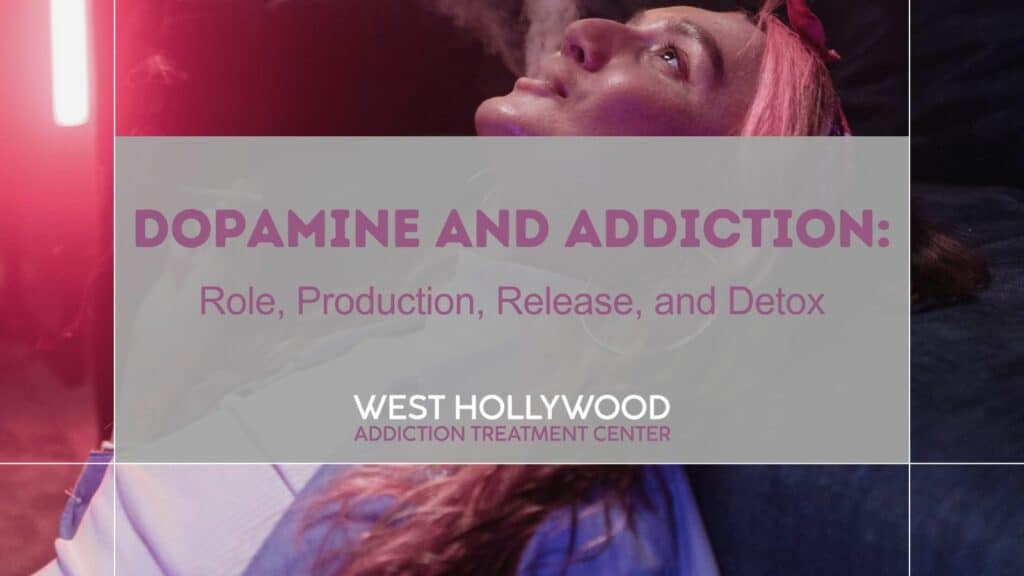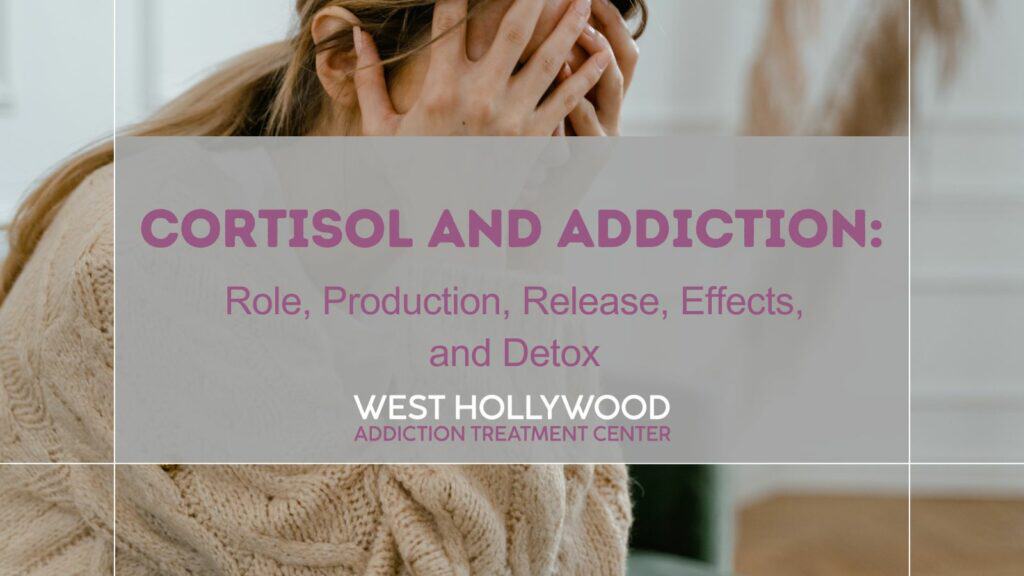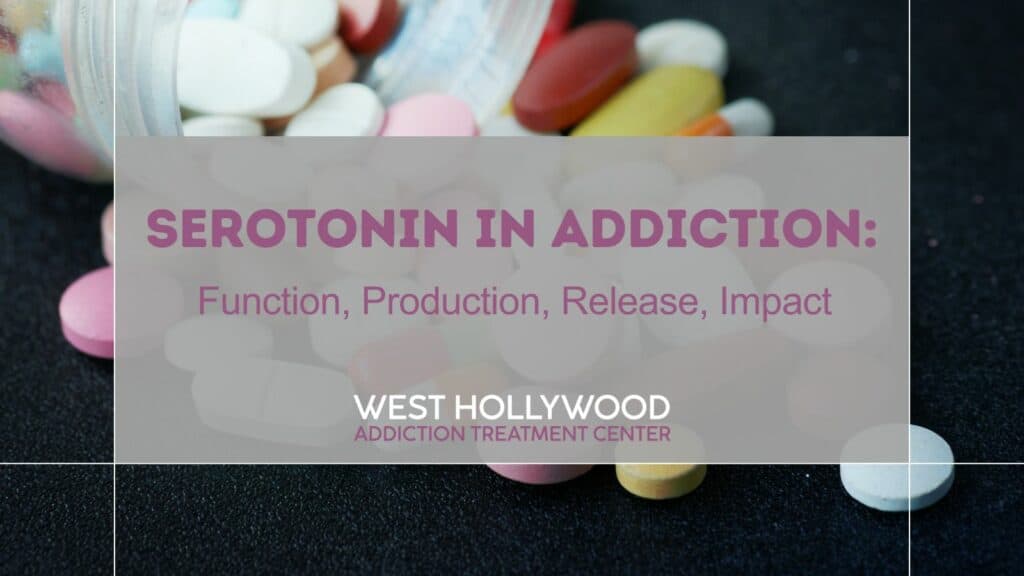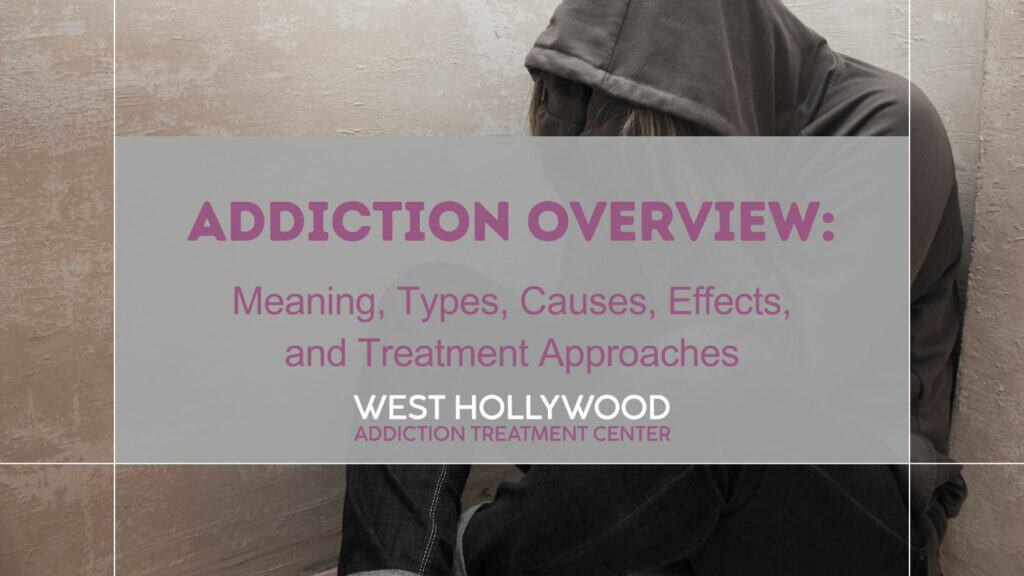Dopamine is a neurotransmitter, a chemical messenger in the brain that regulates mood, memory, sleep, learning, motivation, reward, and movement.
Dubbed the “feel-good” neurotransmitter, it shapes our behavior and experiences and is intricately woven into the brain’s reward system, communicating pleasure, satisfaction, and reinforcement.
The role of dopamine is central to addiction by mediating the brain’s reward system and reinforcing behaviors associated with substance use. Over time, repeated substance use leads to neuroadaptations, where the brain’s reward circuitry becomes dysregulated, resulting in decreased sensitivity to natural rewards and heightened craving for drugs or alcohol to maintain normal dopamine levels.
Dopamine is produced mainly in the substantia nigra and ventral tegmental area.
Dopamine is released into the brain’s reward circuitry, particularly in the nucleus accumbens. This release strengthens associations between the stimulus and the reward, increasing the likelihood of repeating the behavior. When individuals engage in activities that induce pleasure or satisfaction, such as consuming drugs or alcohol, dopamine levels in the brain increase, creating feelings of euphoria and reinforcement.
It is not possible to completely detox from dopamine. However, some individuals choose to engage in a “dopamine detox” by abstaining from activities that trigger dopamine release, such as social media or certain foods.
What Is Dopamine in Addiction?
Dopamine is a naturally occurring neurotransmitter synthesized mainly in the substantia nigra and ventral tegmental area and orchestrates our responses to pleasurable stimuli.
Addiction is a complex interplay of biology, psychology, and the environment.
Dopamine operates along several neural pathways, each with distinct functions: the mesolimbic pathway, originating in the midbrain and projecting to regions such as the nucleus accumbens and prefrontal cortex, is particularly vital. This pathway is referred to as the brain’s reward circuitry and is implicated in addictive behaviors and substance abuse.
In addiction, substances or behaviors hijack the brain’s dopamine system, causing an increased dopamine release and reinforcing addictive behaviors. This creates a cycle where individuals seek out substances or activities that stimulate dopamine release, even if they have harmful consequences.
In a study by Wise and Robble (2020) titled Dopamine and Addiction, the researchers note that animals who can’t make or use dopamine don’t show the learned behaviors Pavlov talked about or the seeking behaviors Craig discussed. They only react to things they naturally like.
Dopamine neurons in our brain fire in bursts when we learn to connect cues with rewards or punishments. They also fire steadily to keep us motivated to respond to those cues.
When someone uses addictive drugs a lot, the receptors for dopamine in their brain decrease, making them less interested in activities that aren’t already linked to the drug’s reward. If an animal needs something, their motivation goes up, and this affects how they react to cues they’ve learned. Addictive drugs don’t usually act as cues themselves, but they affect the dopamine system differently.
The authors also mention that addictive drugs are generally believed to trigger burst-like activity in the dopamine system, which is thought to be linked to addiction. Burst-like activity means that dopamine neurons in the brain fire in quick bursts instead of steady pulses. This kind of activity is linked to the brain’s response to rewards and addictive drugs.
Substance abuse, whether drugs, alcohol, or even certain behaviors like gambling, overtakes the brain’s reward system, flooding it with unnaturally high levels of dopamine. This flood of dopamine creates a euphoric high, reinforcing the behavior and driving individuals to seek out the substance or activity compulsively.
However, direct evidence for this is strongest for drugs like opiates, amphetamine, and cocaine, while it’s not as clear for nicotine, alcohol, cannabis, barbiturates, benzodiazepines, and caffeine. Future studies will compare how different addictive drugs affect long-term potentiation and habit formation through dopamine mechanisms.
Imbalances in dopamine levels are associated with several mental health and neurological diseases, including Parkinson’s disease, schizophrenia, depression, ADHD, and addiction.
Dopamine detox typically refers to temporarily avoiding activities that produce large amounts of dopamine, such as social media, gaming, or binge eating. Although this practice offers some psychological benefits, it should not be confused with actual detoxification from dopamine itself.
What Is the Role of Dopamine?
The role of dopamine is complex and not fully understood, but it has significant implications for both physical and mental health in the following ways:
- Reward Signaling: Dopamine serves as a key neurotransmitter in the brain’s reward system, signaling pleasurable experiences and reinforcing behaviors associated with them.
- Motivation and Drive: It plays a pivotal role in motivating behavior, driving individuals to pursue activities that lead to reward and satisfaction.
- Learning and Memory: Dopamine facilitates learning by strengthening neural connections related to rewarding experiences, thereby influencing memory formation and recall.
- Movement Regulation: Beyond its role in reward processing, dopamine is crucial for regulating motor functions, coordinating movements, and maintaining motor control.
- Emotional Regulation: Dopamine helps regulate mood and emotional responses, influencing feelings of pleasure, arousal, and excitement.
- Attention and Focus: It plays a part in attentional processes, enhancing focus and concentration, particularly on tasks that offer potential rewards.
- Inhibition of Prolactin: Dopamine inhibits the secretion of prolactin, a hormone involved in lactation, reproductive functions, and immune regulation.
- Role in Addiction: In addiction, dopamine dysregulation contributes to the development of substance dependence, as addictive substances often commandeer the brain’s reward pathways, leading to compulsive drug-seeking behavior.
How Is Dopamine Produced?
The production of dopamine is a multi-step process that begins with the amino acid tyrosine, obtained from dietary sources. Through a series of enzymatic reactions, tyrosine is converted into L-DOPA, and subsequently into dopamine by the enzyme aromatic L-amino acid decarboxylase (AADC). This process primarily occurs within dopaminergic neurons, specialized cells scattered throughout the brain.
Over time, chronic substance abuse causes alterations in dopamine creation and signaling pathways, perpetuating addictive behaviors and making it difficult for individuals to experience pleasure from natural rewards.
How Is Dopamine Released?
When stimulated by rewarding stimuli or anticipation of reward, dopaminergic neurons undergo a process called neurotransmitter release. This involves the fusion of synaptic vesicles containing dopamine with the neuronal membrane, followed by the diffusion of dopamine into the synaptic cleft.
Once in the synapse, dopamine interacts with postsynaptic receptors, triggering downstream signaling cascades that culminate in the experience of pleasure and reinforcement.
Essentially, when something feels rewarding, dopamine neurons in the brain release dopamine, a chemical messenger, which then travels to other brain cells, triggering a feeling of pleasure and fortification.
Repeated exposure to addictive substances or behaviors induces neuroplastic changes in the brain, rewiring its circuitry to prioritize the pursuit of pleasure over other functions. This rewiring not only strengthens the association between cues and rewards but also diminishes sensitivity to natural reinforcers, leading to a vicious cycle of craving, consumption, and withdrawal.
Detoxifying
Although dopamine itself is not addictive, its influence on motivation and reinforcement makes it a crucial component in the development of addiction. Breaking free from addiction requires addressing both the physiological and psychological aspects of dependence.
Detoxification, the process of removing toxins or addictive substances from the body, is the first step towards recovery. In the case of substance abuse, medical detoxification under professional supervision is one of the necessary steps to manage withdrawal symptoms and prevent complications.
Beyond detoxification, behavioral interventions play a crucial role in rewiring the brain’s reward system and breaking the cycle of addiction. Cognitive-behavioral therapy (CBT), motivational interviewing, and contingency management are among the evidence-based approaches used to address maladaptive thought patterns, strengthen coping skills, and promote healthy behaviors.
Pharmacotherapy, utilizing medications to modulate neurotransmitter activity, also aids in addiction treatment. Medications such as methadone and buprenorphine are used in opioid addiction to alleviate cravings and withdrawal symptoms, while others like naltrexone block the euphoric effects of alcohol and opioids. Additionally, medications targeting co-occurring mental health disorders, such as depression or anxiety, ameliorate treatment outcomes.
A holistic approach to addiction recovery recognizes the interconnectedness of mind, body, and spirit, tackling the underlying imbalances that contribute to addictive behaviors. This encompasses mindfulness practices, nutritional support, exercise, and holistic therapies like acupuncture or yoga, fostering overall well-being and resilience.
Are dopamine levels restored after addiction?
Yes, with time and appropriate interventions, dopamine levels normalize after addiction. Detoxification and abstinence from addictive substances or behaviors allow the brain to gradually rebalance its dopamine system. Behavioral therapies, medications, and holistic approaches also support the restoration of healthy dopamine function during addiction recovery.
How Does Dopamine Interact with Other Neurotransmitters like Serotonin and Cortisol?
While dopamine is often associated with reward and motivation, its function is intricately linked with other neurotransmitters such as serotonin and cortisol. Serotonin plays a role in mood regulation and emotional well-being, while cortisol is a stress hormone. Understanding the interplay between these neurotransmitters can provide insights into addiction and mental health disorders.
Can excessive screen time or social media use impact dopamine levels?
Yes, excessive screen time and social media use have been associated with changes in dopamine signaling in the brain. Constant engagement with digital devices and social media platforms creates compulsive behaviors and addictive patterns similar to substance abuse. Limiting screen time and practicing digital detoxification strategies do restore healthy dopamine balance and diminish addiction risk.

Share This Post



